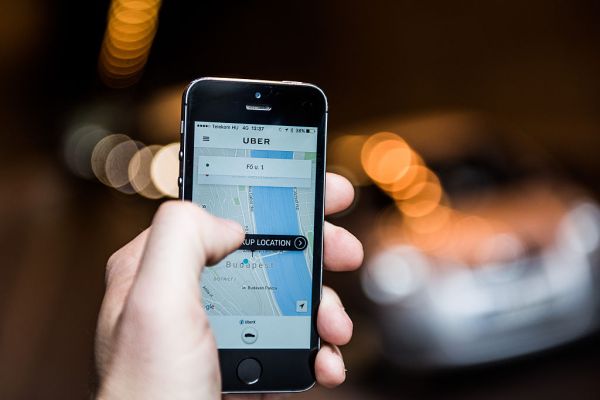Uber is set to reverse a controversial decision to collect users’ location information after their trip ends, Reuters reports, with the privacy u-turn coming first to the iPhone app — expected to get the update this week — and subsequently to Uber’s Android app.
This is according to Uber’s chief security officer, Joe Sullivan, who told the news agency the company will restore the ability for users to share location data only when they are using the app.
We’ve reached out to Uber with questions.
The controversial post-trip tracking feature was enabled by Uber last November, after an app update asked users to choose between being tracked always or never, instead of the prior ability to share location only ‘when using the app’.
Users selecting ‘never’ would have to manually enter all their pick up and drop off locations — meaning opting out of the feature resulted in a significantly degraded user experience.
For those feeling forced to agree to having their location ‘always’ tracked, Uber claimed it would only track users for five minutes after a trip ended — and said it wanted to do so for safety reasons, such as to improve rider picks-ups and drop-offs.
However the move caused huge controversy, exacerbated by the company’s poor reputation for protecting user privacy, thanks to a string of scandals — such as internal employees stalking ex-girlfriends and celebs; the company spying on reporters’ trips, and misusing an internal tracking tool; and claims by a former employee of poor security practices around private data, to name just a few.
Back in 2012 the company also proudly and publicly quantified users’ one-night stand data — which kinda tells you everything you need to know about Uber’s formative attitudes to user privacy under founder Travis Kalanick.
According to Reuters, Uber said it never actually began post-trip tracking for iPhone users, and suspended the feature for Android users. But Sullivan now couches the move to gather more information from users without making it clear what it would offer in return as a mistake.
If the company decides there is value in tracking a rider’s location for five minutes after drop-off in the future Sullivan told Reuters it will seek to explain what the value is and allow customers to opt in to the setting, i.e. rather than pushing it as a de facto default.
He added that Uber had previously suffered “a lack of expertise” around privacy, though also claimed the company had still been committed to privacy.
Sullivan said more privacy, security and transparency related updates will be coming in the next year — as you’d expect, given Uber’s recent settlement with the FTC.
Earlier this month Uber agreed to settle an FTC privacy and security investigation by putting in place a comprehensive privacy program — including agreeing to 20 years of external audits.
Meanwhile, the company finally looks to be buckling a new CEO in place — Dara Khosrowshahi, current CEO of Expedia — having been driverless for months, following co-founder Kalanick’s ouster in June after a shareholder revolt.
Top of Khosrowshahi’s to-do list will surely be trying to restore Uber’s battered trust with users and cleaning up legacy processes that have driven it into so many controversies.
Update: An Uber spokeswoman told us the move is unrelated to the FTC investigation, and rather claimed it has been taken in response to user feedback.
She also pointed to some recent privacy tweaks Uber has made to its app, including how it presents in-app privacy settings, adding the company is now evaluating its approach to location data collection.
